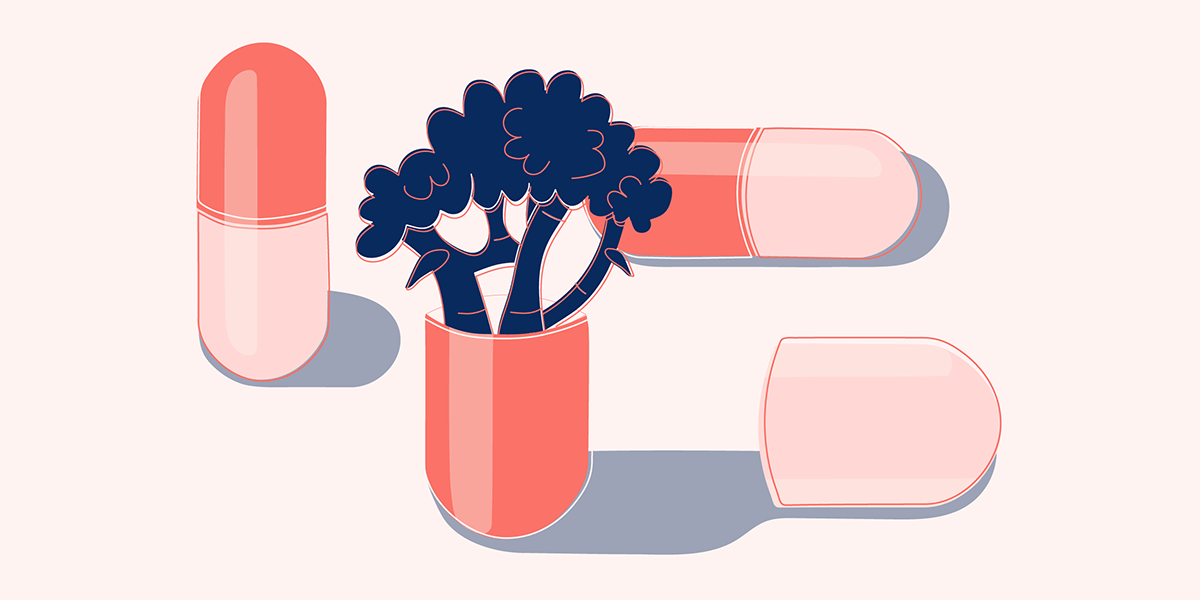December 4, 2020
•

With COVID-19 deaths in the US reaching over 270,000, we are all looking for the best ways to protect ourselves from the virus.
As a result, many of us are adding quick health fixes like vitamin supplements and immune-boosting juices to our daily routines.
But are they worth the money? And do they really help to protect against COVID-19?
We know that some nutrients like vitamin D play key roles in supporting our immune systems, but our latest research through the ZOE COVID Symptom Study shows that vitamin supplements only have a limited protective effect against COVID-19.
Our ZOE COVID Symptom Study app, which has over 4 million users logging their health every day across the UK, US and Sweden, asked people which supplements they have been taking during the pandemic. Then we combined that information with symptom and testing data to explore how different supplements impact the chances of catching COVID-19.
Together with researchers at King’s College London, we crunched the data and found:
The full results were published this week as a pre-print and have been submitted to a scientific journal for review.
You can also read more about the survey and its results on the ZOE COVID Symptom Study blog.
Based on the evidence so far, it doesn’t look like it. Here’s why.
First, although the observational results from the ZOE COVID Symptom Study survey are interesting, they can only suggest correlations between supplement use and COVID-19 risk and can’t prove that they are directly responsible for the effect.
Large randomised controlled clinical trials are the best way to discover whether they have a real effect on COVID risk, and several trials testing the effect of vitamin D are underway.
Second, a handful of supplements is unlikely to solve all your health problems if you aren’t eating well for the rest of the day.
Provided you eat a diverse, healthy and balanced diet, you are likely to get all of the nutrients that your body needs. Better diet quality is also associated with lower incidence of obesity and chronic disease, which we know are linked to worse COVID-19 outcomes.
It’s also important to remember that our diet isn’t the only thing that affects our health.
Where you live plays a big role - including access to healthy food, space for exercise and exposure to pollution - as well as your financial and social situation, access to healthcare, and ethnic background.
None of these things can be easily fixed with a bottle of vitamins.
At ZOE we believe that eating real food that works for your individual biology is the best way to support your health.
Our PREDICT studies show that we all respond to food in unique ways. Even identical twins, who share 100% of their genes, can respond very differently to the same meals.
Repeated unhealthy responses food can trigger what’s known as dietary inflammation - unhealthy metabolic effects that can contribute to weight gain and diet-related diseases.
Our ZOE at home test can help you discover your personal nutritional responses, along with personalized recommendations for foods that work with your metabolism to improve your health.
The billions of microbes living in your gut, known as the microbiome, also influence your nutritional responses, health, and weight. You can support your microbiome - and your health - by eating a diverse range of plant-based foods.
If you want to know more about the bugs living in your own gut, our ZOE at home test also gives you information about 30 ‘good’ and ‘bad’ microbes with strong links to diet and metabolic health. You’ll also get personalized recommendations for foods that help the ‘good’ ones thrive and avoid encouraging the ‘bad’.